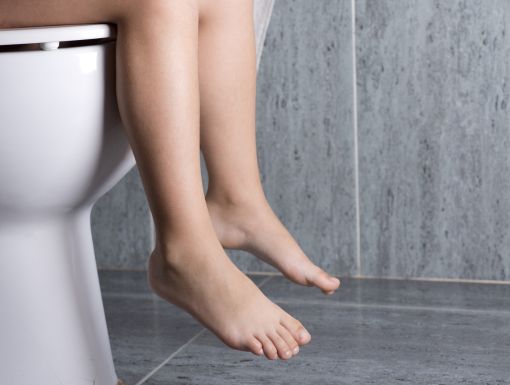
What is Your Toddler’s Poop Telling You?
If there’s one thing every parent deals with, it’s poop. If you are like most parents, you have probably spent a considerable amount of time inspecting your toddler’s poop. We are here to answer your poop questions and answer the biggest question of all – “What is your toddler’s poop telling you?”
Healthy guts start with food
From the time your child transitions to solid food, you will notice more formed stool. Some days your toddler will be feel adventurous and agreeable and will try new things; other days they will be very picky and stubborn with their choices. In general, if you offer healthy choices, even picky eaters will take what their body needs over the course of a few weeks. With changes in diet you will probably notice changes in your child’s poop.
Fruits that start with “p” make you poop – peaches, pears, prunes and pineapple. If your toddler is struggling with poop, focus on incorporating these options, along with melons and berries to help keep poop soft. If your toddler becomes especially picky, then it is fine to buy jarred baby food peaches, pears or prunes and mix them with anything your toddler eats like yogurt, oatmeal or grits. You can also buy frozen versions of these fruits and make them into a delicious smoothie for your toddler!
If fruits that start with “p” aid in digestion, foods that are white can make your toddler’s poop too hard. If the poop is too hard, then start to limit cheese, bananas, white rice, white pasta, white sugar and white bread/buns. Milk is great for kids but should be limited to three servings daily.
If the frequency of your toddler’s poop seems normal, but the consistency could use a little softening, try darker whole grains like brown rice, brown pasta and brown bread. Raisins and oatmeal are also good choices.
It is also important to hydrate. Limit the amount of milk that you give your toddler to three servings daily and otherwise offer water only. Bring water bottles any time you are on the go to help keep your toddler hydrated and promote softer stool.
Consistency is key
Poop that is soft means that your toddler is happy and healthy. If you feel your toddler’s poop is too soft, first eliminate all juice and sugary beverages. Sometimes viruses, like stomach bugs, will cause softer or even watery poop, and if this is excessive it could lead to dehydration. If the poop is truly watery and your toddler’s number of urine diapers have decreased, then you should call your pediatrician or come in for a check-up. For watery stool more than two to three times daily, you may offer three ounces of Pedialyte to drink after each watery stool passes. Otherwise just encourage drinking and having frequent meals and snacks. Most viral diarrhea will resolve on its own within 10 days.
If your toddler’s poop is too hard, this could signal constipation. Constipation in toddlers means that the poop is too hard to pass normally; it is not related to the frequency of bowel movements. Try the foods mentioned above to soften your toddler’s poop.
At times of stress and change most humans “hold in their poop.” This is especially important to watch for when on vacation, moving houses or changing daycares/babysitters. Both happy and sad changes can result in a toddler holding their stool.
Time to start potty training
Potty training can be a stressful time for both the parent and the toddler. Eating, peeing and pooping are the three things toddlers have control over. When a toddler wants to show control, they will usually refuse foods or refuse to use the toilet, so it is important to be patient.
A toddler who is forced to toilet when they are not ready will hold their stool in and may become severely constipated. The longer they hold their stool, the larger and harder the stool becomes. This can cause more pain when they finally poop and make them even more fearful of toileting. It is always better to allow your toddler to poop in a diaper than to take the diaper away if they are not ready.
The softer the poop the more difficult it will be for a toddler to hold the stool in. Once the poop is soft and predictable, then it is a good time to start introducing the potty. To ensure soft poops, remember to start with the basics discussed above: hydration, “pooping foods” and avoiding “white foods.”
If a toddler is passing stool larger around than a hot dog, chances are they have already stretched out the bottom of their gut (anus/rectum/colon). Adjusting your toddler’s fluids or diet to maintain stool the consistency of pudding, one to two times daily, will give the gut time to become healthy again. If you are unable to get the stool soft using diet or fluid changes, call your toddler’s pediatrician to schedule an appointment to work on a treatment plan.
When to call us
Trust your parental instincts. If you feel that something is wrong our team of pediatricians are here to examine your toddler and go over any concerns. While most changes in your toddler are nothing to worry about, here are a few instances where you need to contact your child’s pediatrician:
- If your toddler is refusing all food or drinks
- If your toddler has decreased the amount of wet diapers, especially if they have less than three in 24 hours.
- If your toddler’s vomit is “tennis ball” green, or has blood
- If your toddler’s poop contains blood or is tar-like
Still have questions? Talk to one of our pediatricians.


